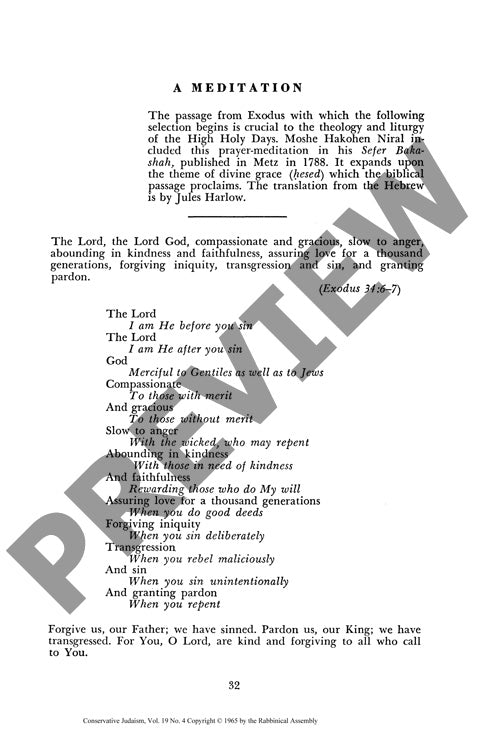A Meditation
Couldn't load pickup availability
In 1788, an innovative prayer-meditation published in Metz transformed a foundational biblical passage into a comprehensive theological framework for divine mercy. Written by Moshe Hakohen Niral in his Sefer Bakasha, this sophisticated interpretation of Exodus 34:6-7 bridges scriptural exegesis and High Holy Days liturgy through systematic analysis of divine attributes. Through close textual examination of the Hebrew meditation, as translated by Jules Harlow, each divine epithet—compassionate, gracious, slow to anger, and abounding in kindness—receives detailed interpretative glosses that illuminate their theological significance. The meditation's verse-by-verse exposition reveals an inclusive understanding of divine mercy (hesed) that extends to both Jews and Gentiles, while addressing various categories of sin: deliberate, rebellious, and unintentional. Culminating in a penitential plea, the work emphasizes the conditional nature of divine forgiveness through repentance, synthesizing its theological insights. This devotional text stands as a remarkable example of 18th-century rabbinic hermeneutics, demonstrating how liturgical practice could be enriched through systematic theological interpretation of biblical text.

More Information
-
Physical Description
-
Publication Information
Published 1965
ISBN
-
Publication Credits
Jules Harlow

